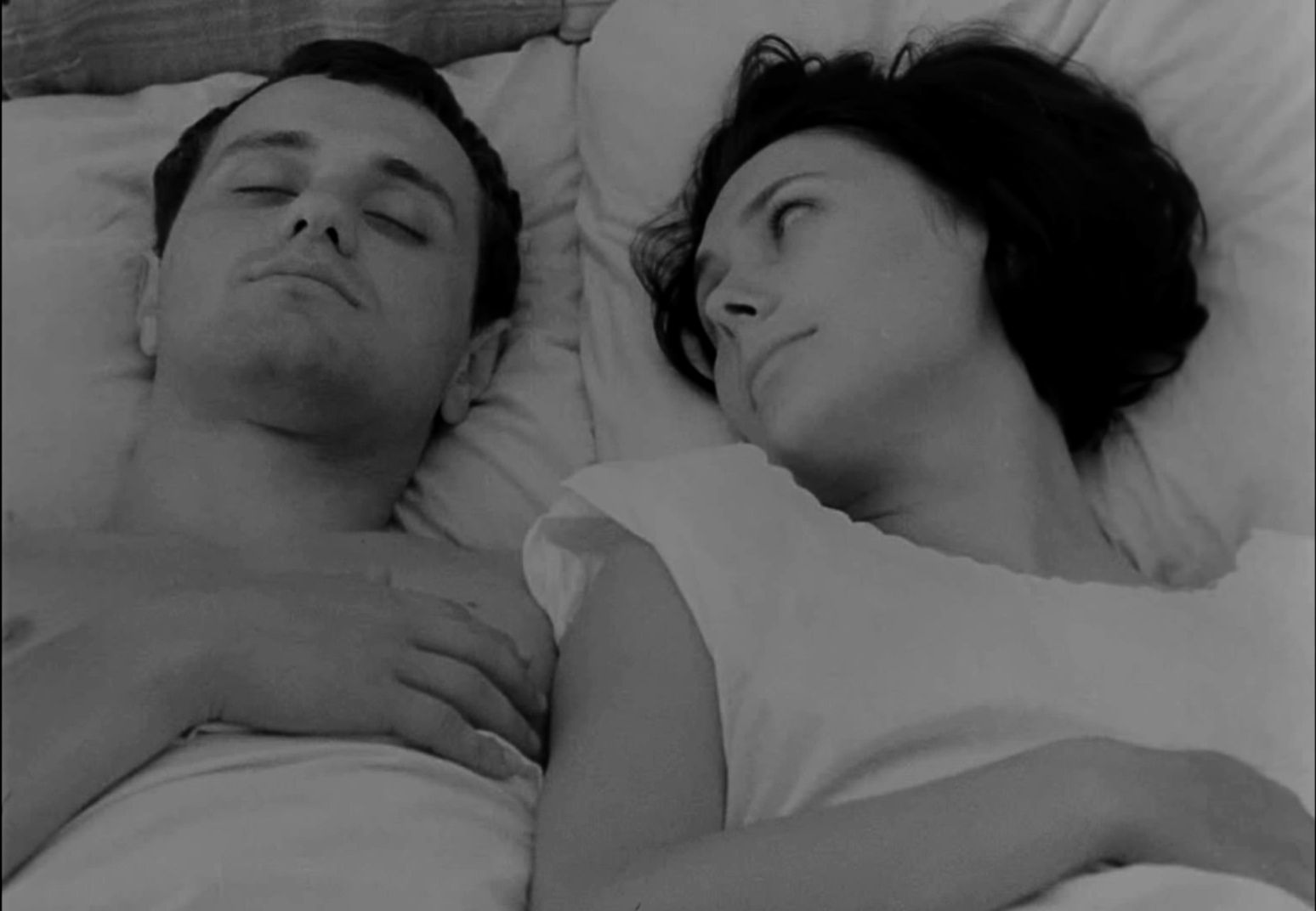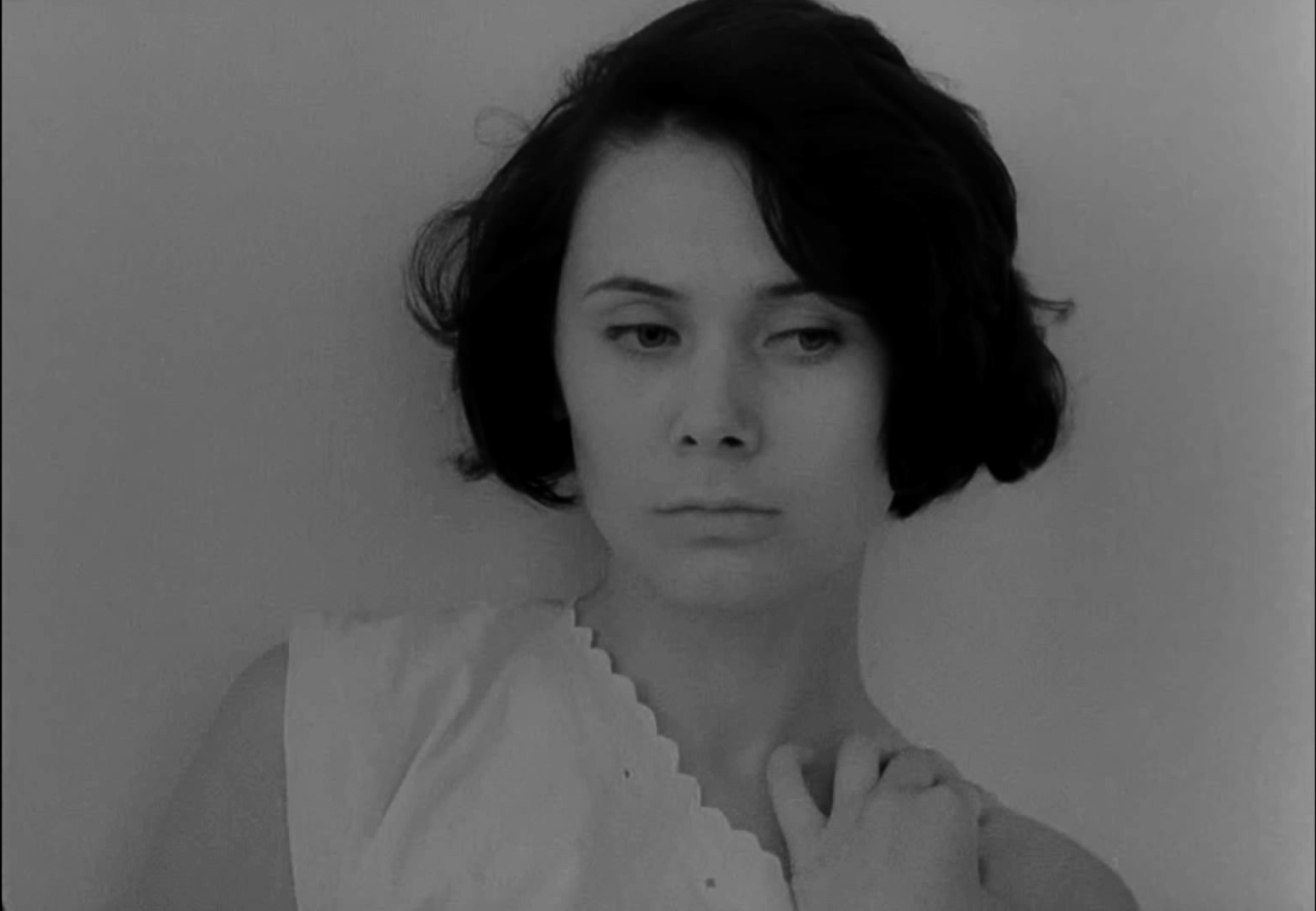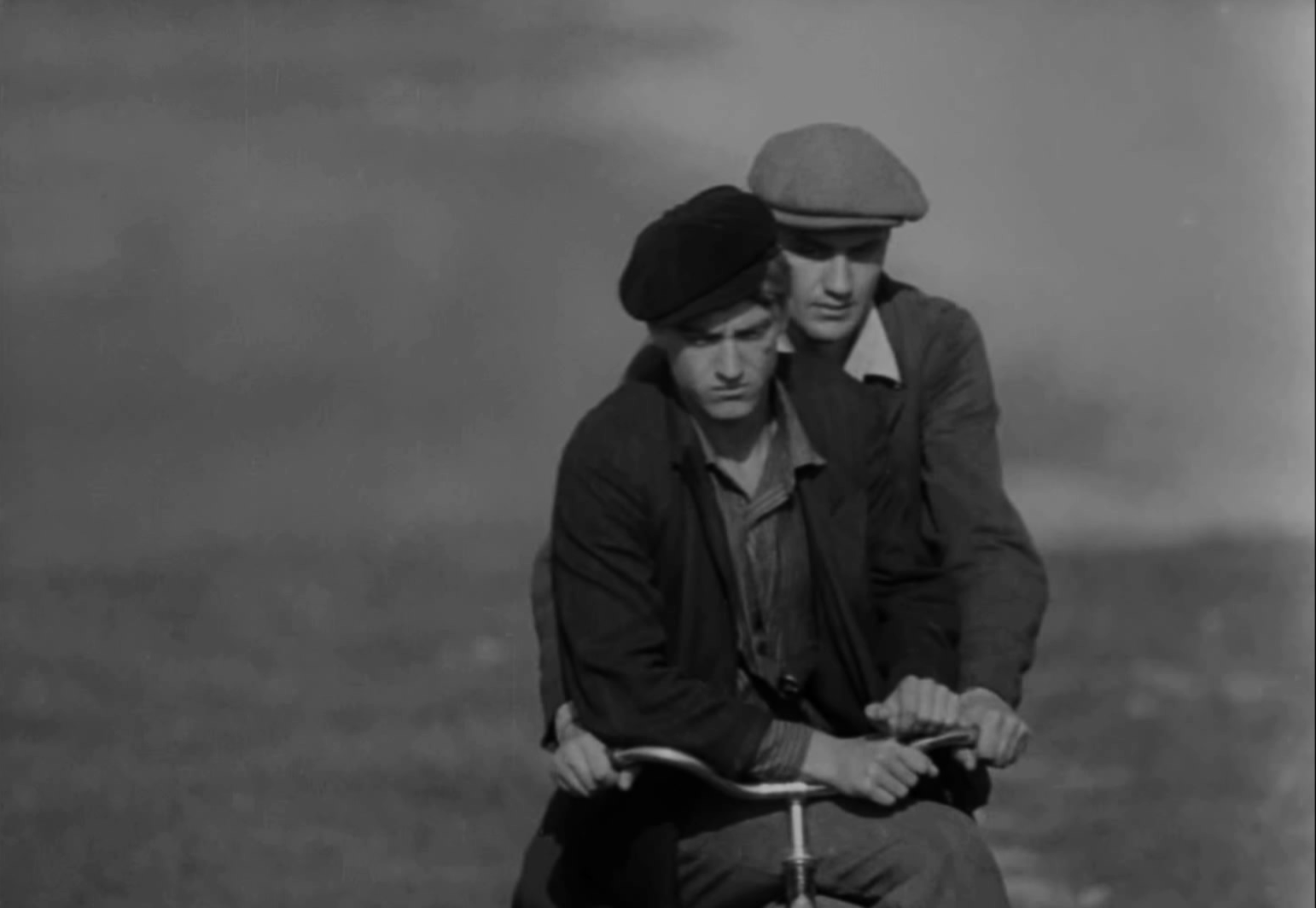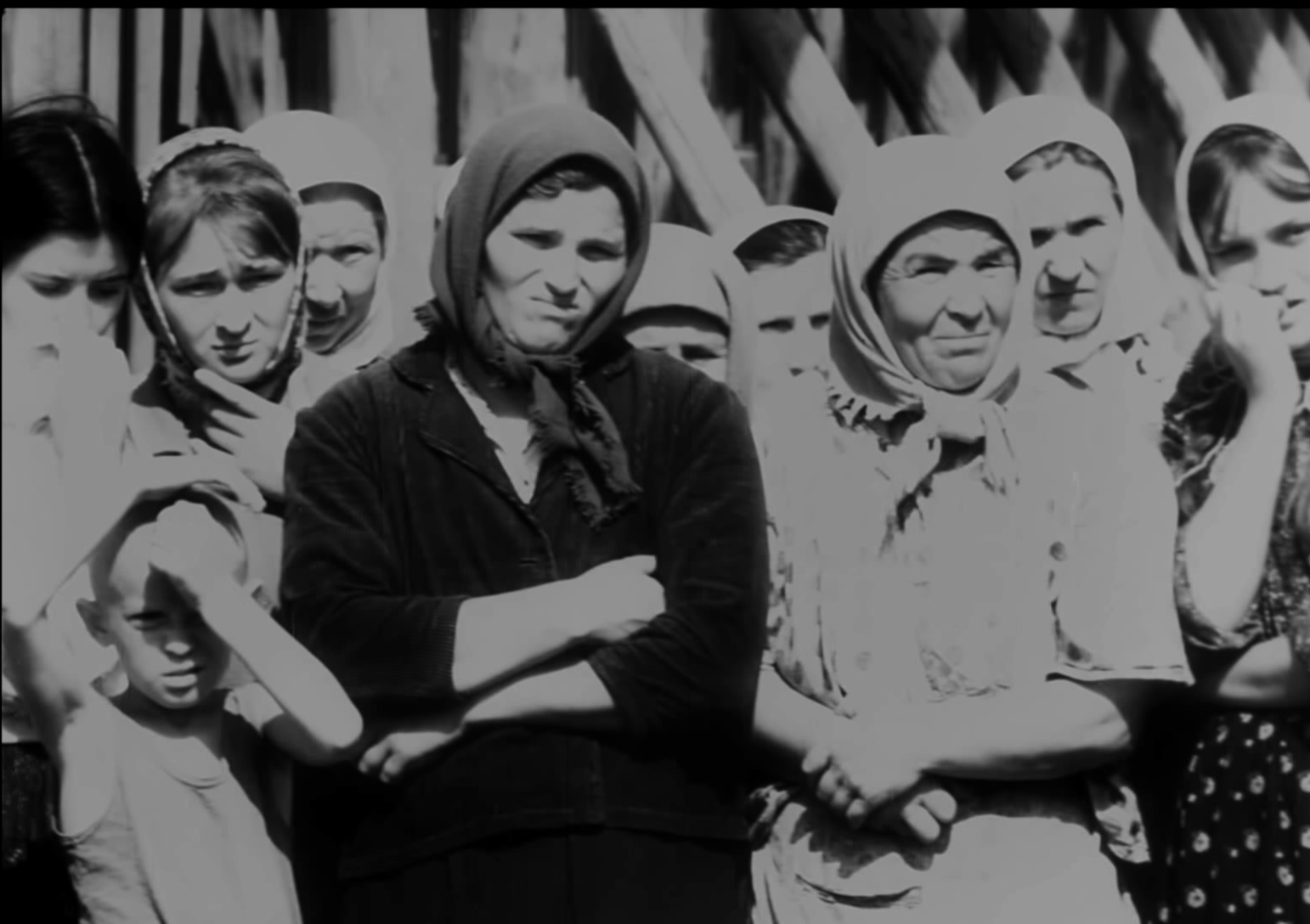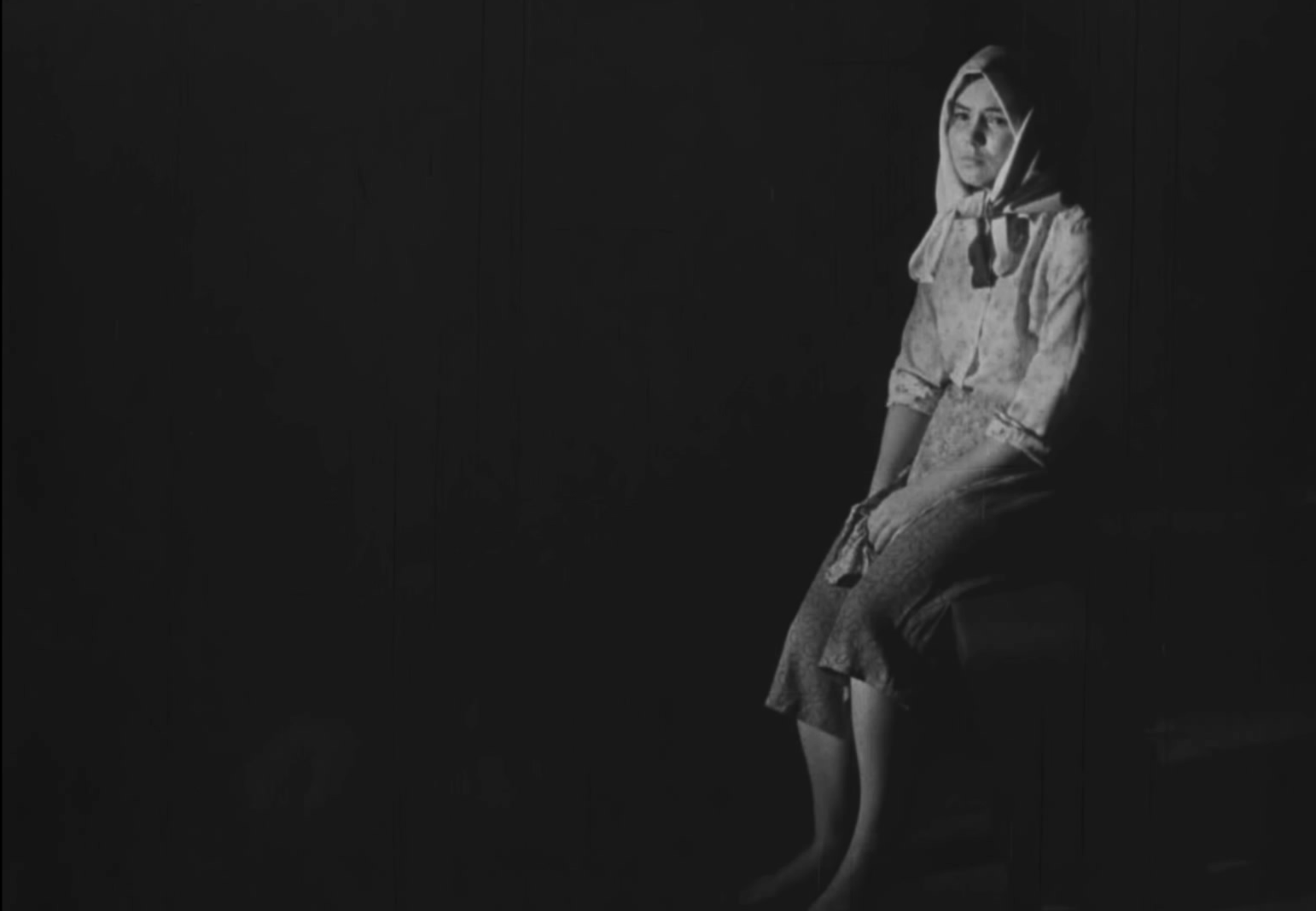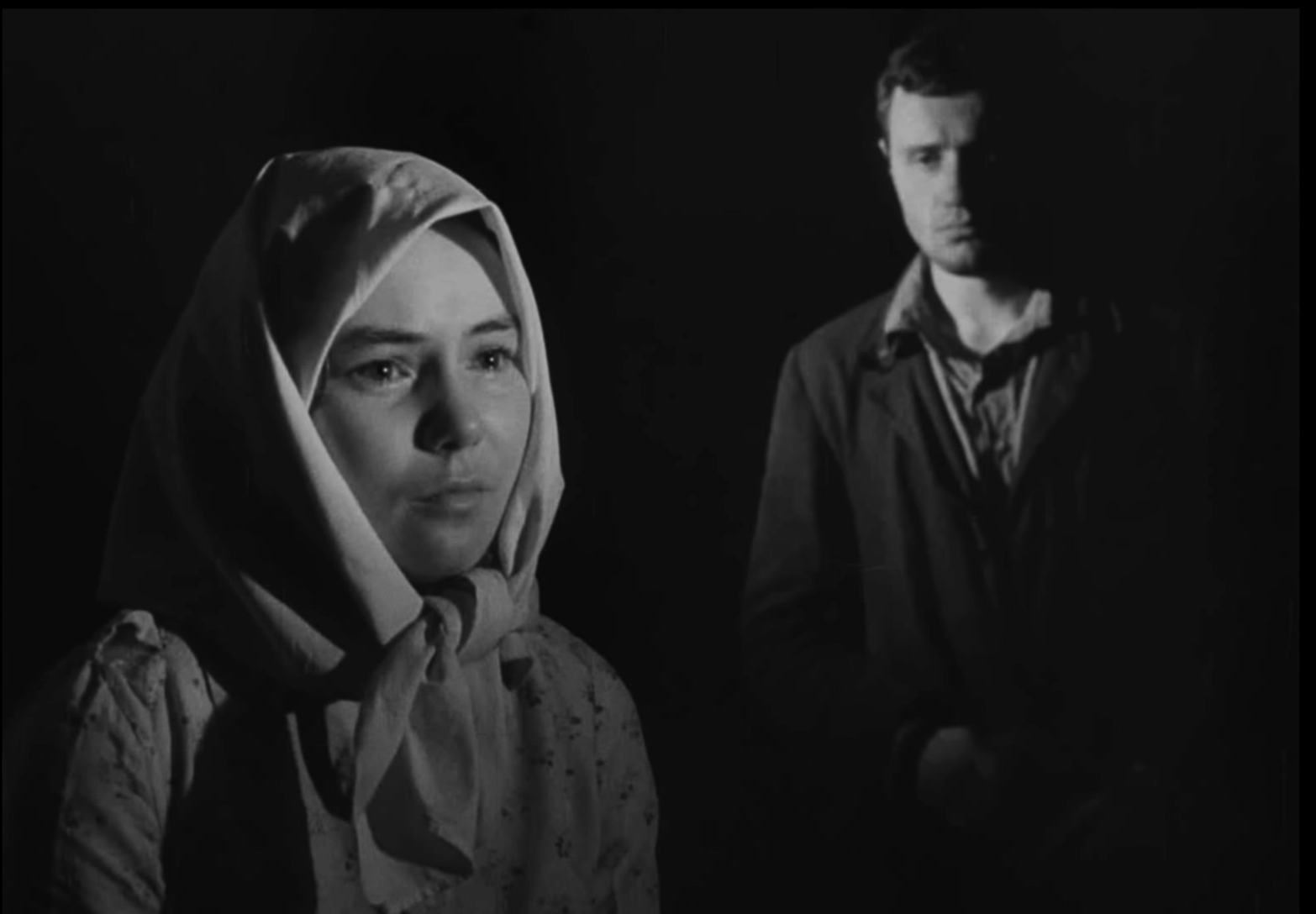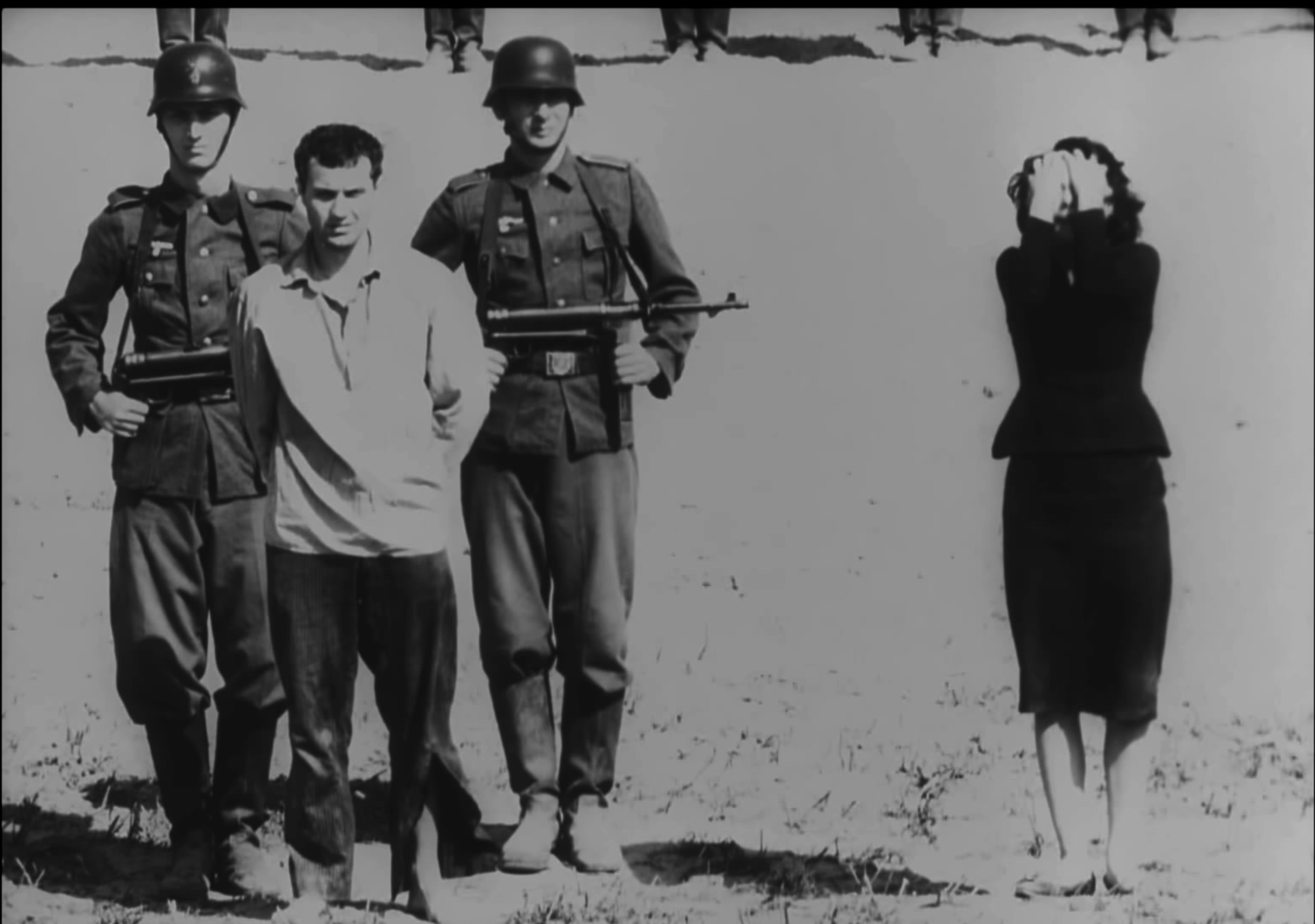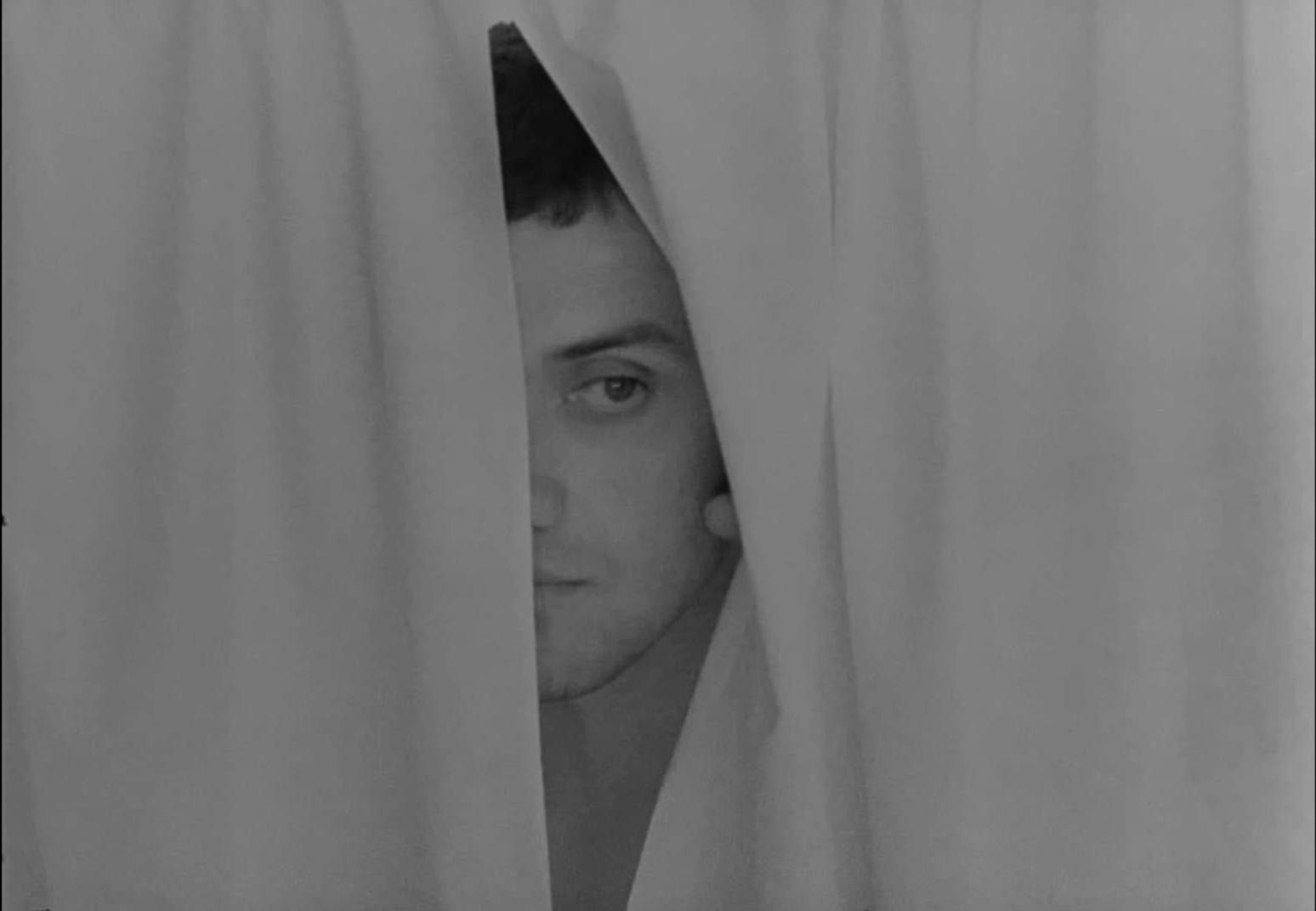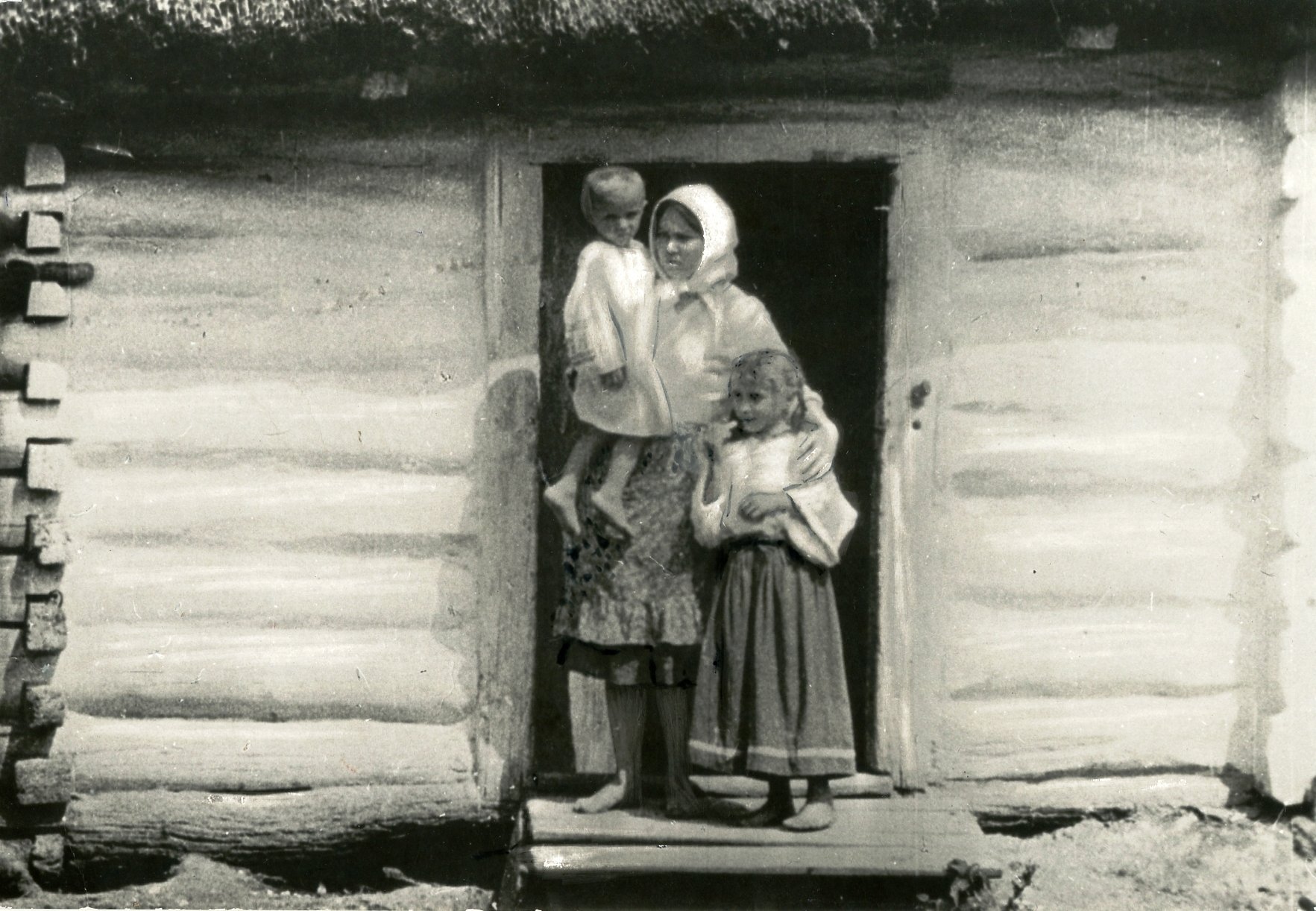
Conscience / Sovist
1968
Ukrainian SSR
Kyiv National I. K. Karpenko-Kary Theatre, Cinema and Television University
80 min
Volodymyr Denysenko
Volodymyr Denysenko, Vasyl Zemliak
Oleksandr Deriazhnyi
Anatolii Sokolovskyi, Viktor Maliarevych, Mykola Oliinyk, Mykola Hudz, Oleksandr Didukh, Vasyl Bohosta, Viacheslav Kryshtofovych, Volodymyr Denysenko, Dmytro Dieiev, Oleksandr Denysenko, Nina Reus
World War II is raging, and Ukrainian lands are occupied by German forces. During a skirmish on a country road, a young man from a Ukrainian village kills a German officer. The Germans demand that the boy be handed over, threatening to kill everyone. The villagers face a terrible moral dilemma. While their destinies rest in the hands of a boy who can halt this horror by sacrificing his own life.
Conscience is a distinctive example of independent cinema, created within the Soviet system yet in opposition to it. Its director, Volodymyr Denysenko, after completing the second year at the Kyiv Karpenko-Karyi Institute in 1948, was arrested and imprisoned for five years in a penal labor camp, under the fabricated charge of “Ukrainian bourgeois nationalism.” In 1956, he was exonerated, and Denysenko not only returned to cinema but also created a series of iconic films (Soldier, A Dream, Roman and Francesca). He served as an assistant to Mark Donskyi on the cult film At a High Cost and completed an internship with Oleksandr Dovzhenko.
Denysenko filmed Conscience with his students from the Karpenko-Karyi Institute (among his students was Viacheslav Kryshtofovych) during a summer internship. The film was shot without a budget, and the entire film crew lived in a real village, performing chores around the farmsteads in exchange for accommodation and food provided by the local residents.
Conscience is a more sincere, intimate, and radical extension of the director’s prior film, In the Direction of Kyiv, which portrays the events of the Second World War as well. However, unlike the previous work, Conscience was immediately banned for over twenty years. Its premiere occurred in 1991 at the First All-Ukrainian Film Festival in Kyiv, after the death of its director. Subsequently, it was screened at numerous festivals worldwide.
